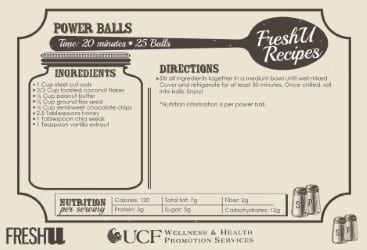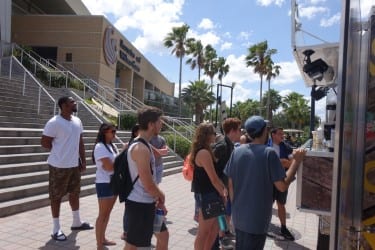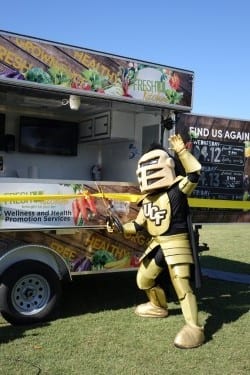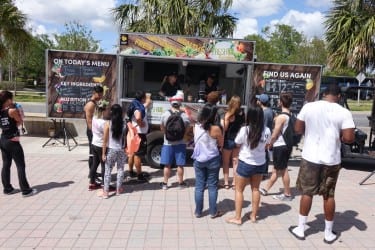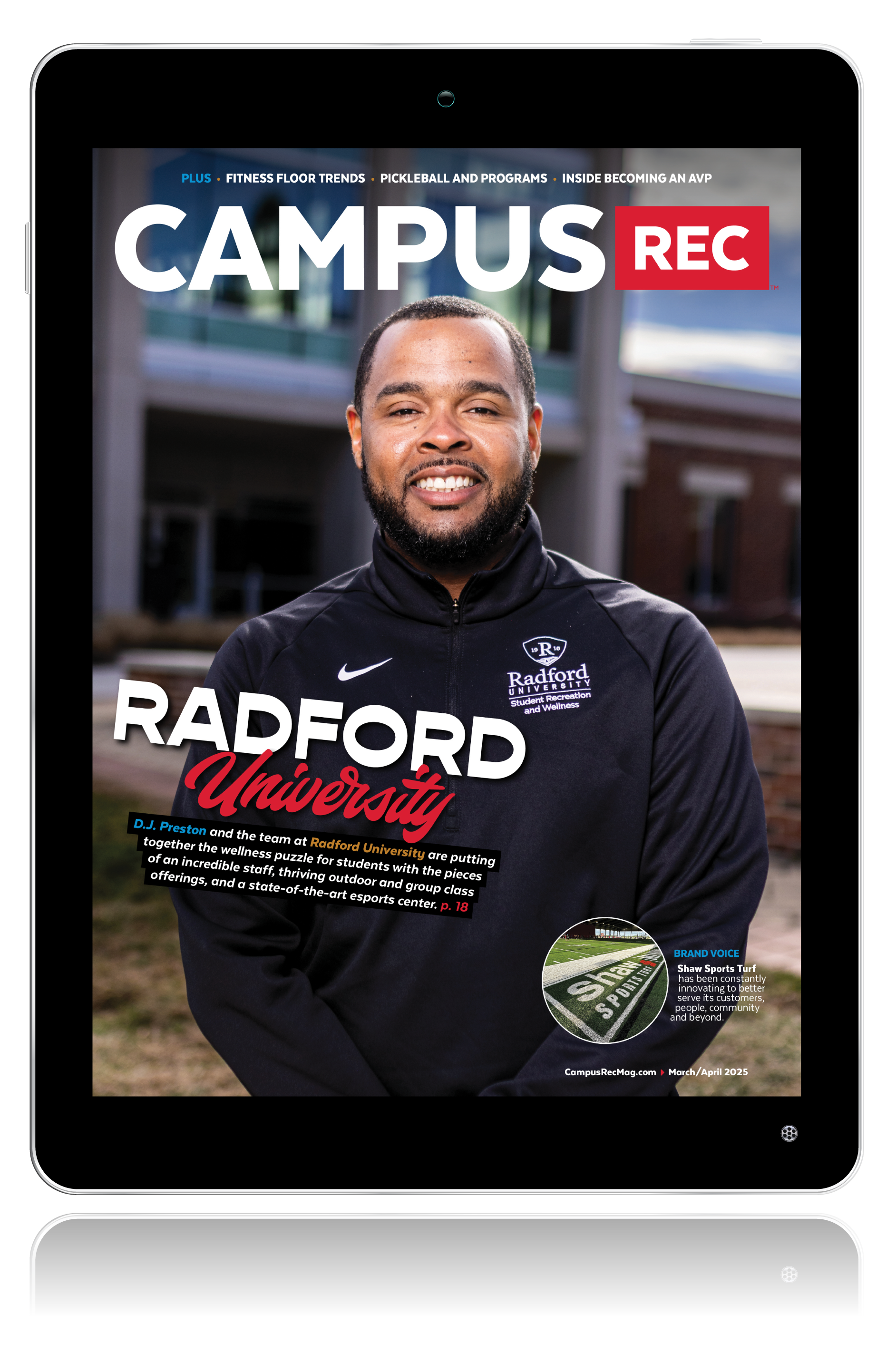Last week was debut week for the University of Central Florida’s (UCF) new initiative to make their campus healthier — an on-campus FreshU Kitchen food truck that handed out delicious samples of food with recipes to students to encourage healthier eating habits.
The FreshU Kitchen has directly worked with the arboretum on campus to distribute freshly grown organic fruits and vegetables to students for free. But a lot of students weren’t taking advantage of this service, because they didn’t know how to prepare the foods.
Maureen Hawkins, director and certified wellness coach at UCF, said she realized demonstrations may be the most effective way to get students to take and eat the vegetables.
“A lot of students don’t have experience with kale or cauliflower or things like that,” said Hawkins. “We decided to do some demonstrations to see if we could get them to eat it if we gave them a hands-on experience. Students seemed to enjoy it. It was a quick demonstration showing how to hold something when you cut it and some nutritional information. So the students could understand where the food comes from and what the nutritional value is so they could work it into their diet.”
The hands-on approach took off, resulting in waiting lists for cooking classes. Staff decided about a year ago to try to be as mobile as possible, taking a public health approach, keeping three goals in mind:
- Increase access to fruits and vegetables
- Reduce food waste
- Teach nutrition skills
Hawkins said that students report consuming zero to one fruits and vegetables a day. She wanted them to have access to something that was inexpensive and quick, to make “the healthy choice the easy choice,” and to help students create healthy habits now, removing the risk barriers (diabetes, hypertension, obesity) that come with consuming a lot of processed foods.
The demonstration-style truck was bought from Miami Trailer, a company that specializes in custom food trucks in Florida. There are two people that work in the truck at a time to prepare the food to hand to others to serve. The idea behind mobilizing the kitchen was to try to reach out and connect to students who may be on different sides of campus.
“We don’t like to wait for students to find us,” Hawkins said. “We like to be out where the students are, and engage them where they are, so we decided it was time to go mobile and travel around campus and reach out and connect to students who may not visit the side of campus where we’ve been located.”
There are six main locations mapped out that are high-traffic, safe spots for the truck to be parked on campus. One is in front of the Rec Center.
“What we’re planning to do is target those entering the Rec Center and engage them about their nutrition,” explained Hawkins. “There’s this idea that if you’re working out, you’re healthy — but, they may still be consuming a typical college student diet. We want to teach that incorporating fruits and veggies will aid in their energy level and improve their performance.”
The demonstration experience at the FreshU Kitchen starts with offering students a sample and then showing them a five to seven minute demonstration on how they are preparing the food on screen (and in real life, too).
“Those preparing the food are certified nutritional specialists. After tasting the sample, students are offered to take some of the ingredients and recipe cards. It sort of looks like a farmers market,” added Hawkins.
Hawkins said they try to be strategic about what they offer at the FreshU Kitchen and when, and that everything is packaged so that students can walk it to class with them without having to worry about automatically having to refridgerate. Some of the things offered so far have been: egg and broccoli mini quiche, bean dip, southwest quinoa salad and apple and banana slices with protein.
Expert Advice
“Go with what you know. Start slowly. The requirement was five and now nine fruits and vegetables a day. It’s unrealistic to expect us to jump that far if students are currently consuming zero to one a day now. Go with what’s familiar —students are far more likely to engage with an apple or banana than papaya and kale. Find partners that have a passion for this. We’re trying to put bowls of fresh fruit in the UCF Rec so students can take it with them and fuel their body with nutritional things as part of their exercise routine. The dining service has changed things around so cookies aren’t the last stop at the door, but fruit is.” -Maureen Hawkins
Karima Neghmouche can be contacted at kari@peakemedia.com.



